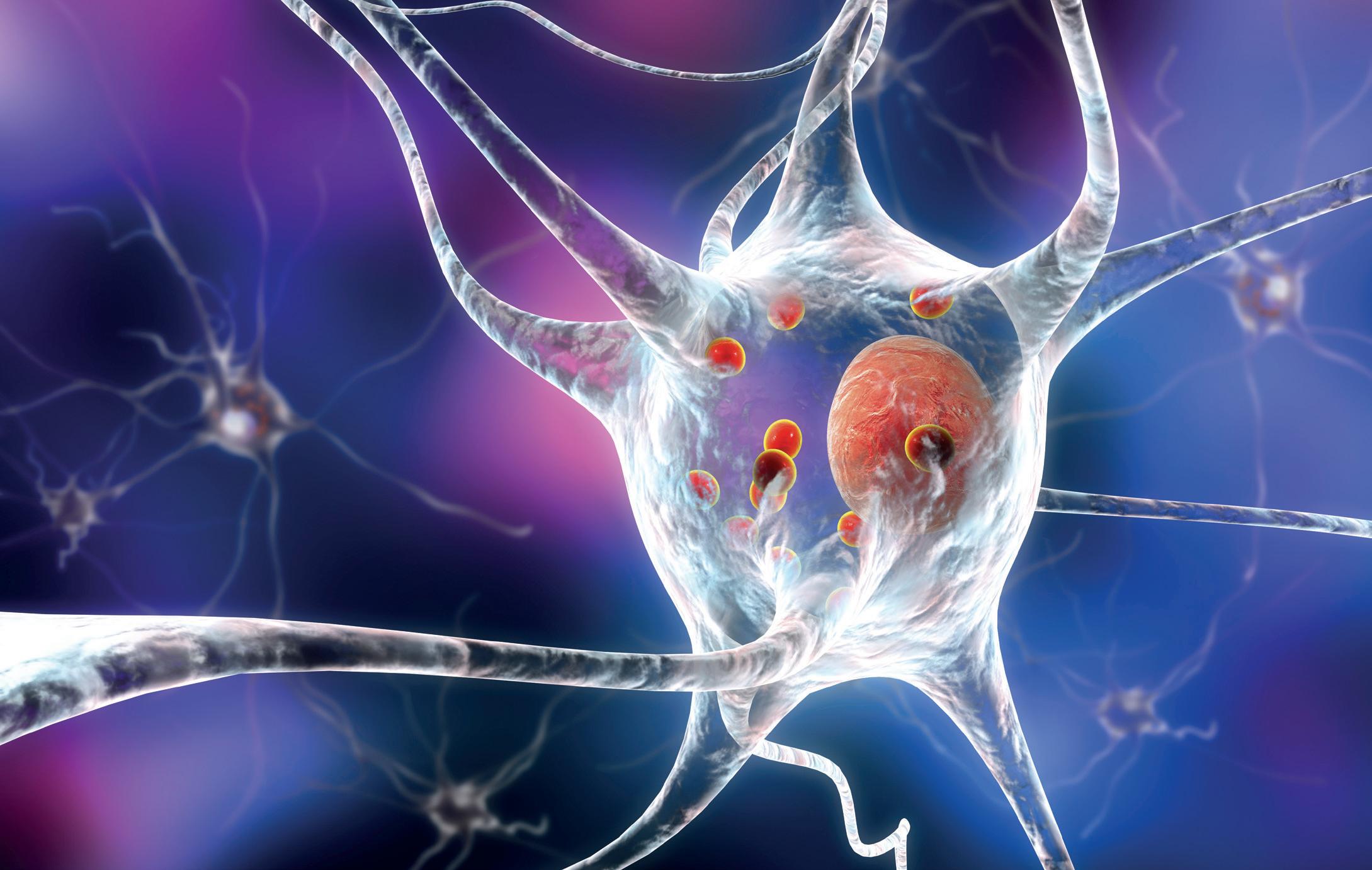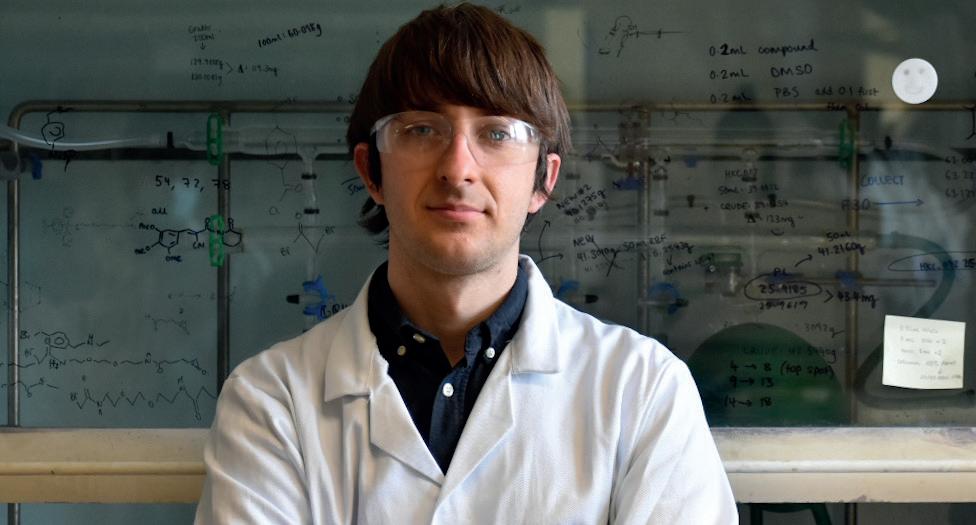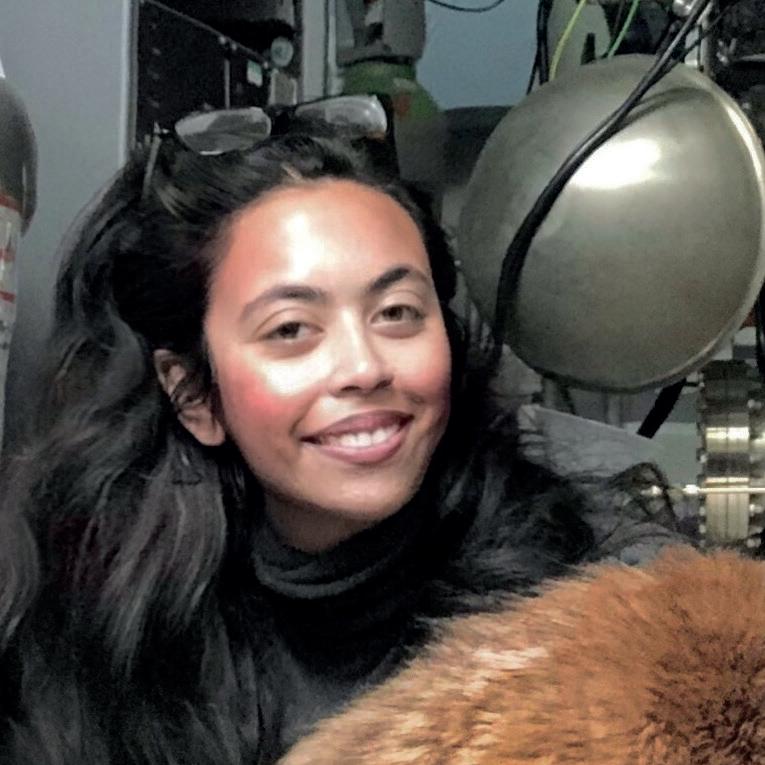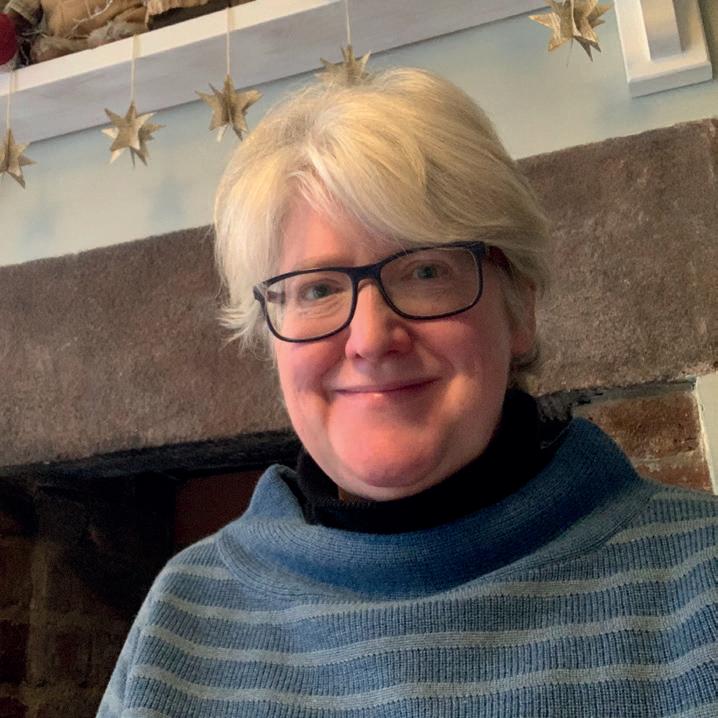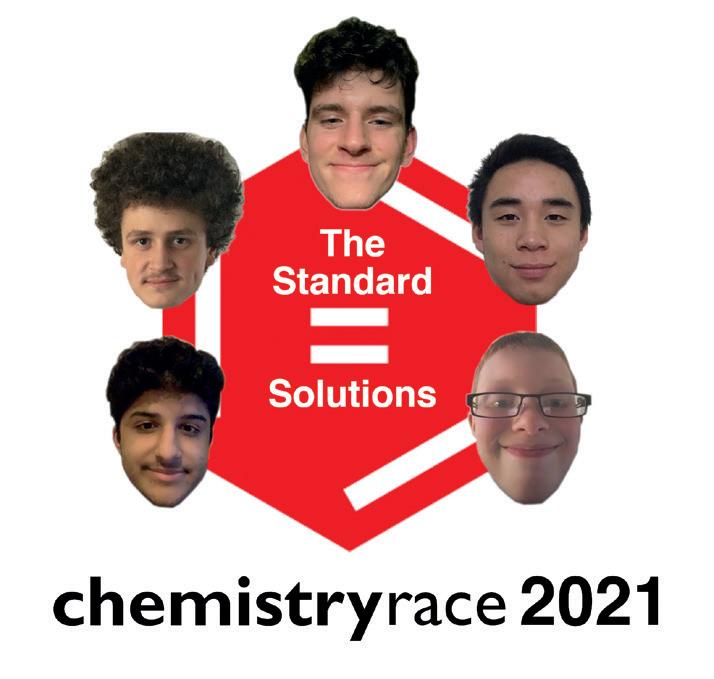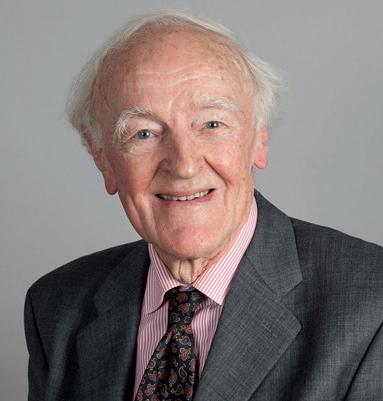
7 minute read
Tempus fugit
from Chem@Cam Issue 62
When he was growing up, alumnus Andy Richards’ mother often repeated these famous lines from Kipling to him: “If you can fill the unforgiving minute with sixty seconds’ worth of distance run…” And with his remarkable accomplishments and activities, Andy has clearly taken this exhortation to heart.
Time is a theme that runs through Andy Richards’ life. “My family will tell you I’m sort of obsessed with time,” he says via Zoom from the office he has built in his back garden.
But this is because there is still so much Andy wants to do – not that he hasn’t already managed to fit a lot in since he was an undergraduate here from 1978 to 1981. Andy applied to read the Natural Sciences Tripos after being inspired by the science teachers at his grammar schoolturned-comprehensive in Cornwall, which had no track record of sending people to Cambridge. Andy was accepted at Jesus College, where his Director of Studies was Peter Edwards, an inorganic chemist who is now Head of Inorganic Chemistry at Oxford, and for Part II Andy specialised in inorganic chemistry with Jack Lewis and Brian Johnson.
This leads to the second running theme in Andy’s life, which is people. “I had no plan and I had no real idea what I wanted to do,” he confesses, “but I find people inspiring, attractive, interesting, stimulating, whatever you want to call it. So in a sense I was as much inspired to do inorganic my final year by the likes of Peter Edwards, Brian Johnson and Jack Lewis,” he explains. “I’ve always been attracted to the ‘who’ and much as to the ‘what.’”
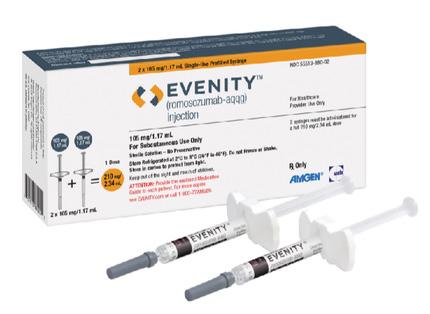
A Chiroscience discovery which led to Romosozumab (Evenity) is used to treat osteoporosis. Steep learning curve
When Andy’s future wife returned to Cambridge for a research fellowship, Andy left ICI and joined Cambridgebased consultancy firm PA Technology. As a consultant Andy further honed many skills that later proved invaluable. He learned to give persuasive pitches, to sell and do lastminute research for presentations to clients who ranged from governments, large and small companies, investors “and basically all comers,” he says. “It was great – we were permanently on the edge, I was constantly going up learning curves – it was exhilarating, scary and educational. I learned a huge amount from that.”
It was during this time that Andy began to perceive his calling, which brought together the threads of ‘people’ and ‘time’ already running through his life: “I absolutely knew I had to be involved in start-ups,” he says. “What I really loved was that spirit of being a sort of “band of brothers – and sisters. With early ventures all the energy is outwards, bright folks trying to do something difficult together – you’re a team and there’s that great feeling of camaraderie.” Together with the people, there was also the feeling of being on the cutting edge of science, of riding the crest of the wave at just the right time –“timing is everything”.
Andy says the best parts about his time at Cambridge were “friends, stimulation, just the ability to think and see no limits.” The worst part was, naturally, “there was just not enough time – it was all too short.”
After Cambridge Andy completed his PhD in bio-inorganic chemistry with Professor Andrew Thompson at the University of East Anglia, researching the behaviour of metal clusters in proteins. “I had always been interested in biology as well, so to look at metal clusters in biological systems seemed to scratch two itches.”
Curriculum Vitae: Andy Richards
Born: Cornwall
Education:
Undergraduate Jesus College 1978–1981 PhD University of East Anglia 1981–1985 Start-ups: Too numerous to mention Honours: CBE for services to life-science investment First start-ups
Dipping his toes
So after one initial unsuccessful start-up attempt, Andy joined Enzymatix, a Cambridge-based biotech, to spin out a new company. The people and the timing were right. “We pulled technologies out and created a new company first called Chiros, which then became Chiroscience,” After UEA Andy was recruited to join ICI (now AstraZeneca). “I still never had a plan,” he admits, smiling. “I have huge admiration for people who have their careers mapped out, but I also find it strange because the world changes and shifts and then he says. “The impact of chirality on pharmacology and medicine were being realised and there were lots of specific opportunities for optimising stereochemistry in pharmaceuticals. And the technology, patents and regulations had all come together at the same time to make it possible.” there’s serendipity.” Andy makes the subsequent history of Chiroscience sound ICI had set up a couple of early biotech units, which interested Andy. He says it was a great place to learn and develop, although even in these early stages of biotech he was worried about time and timing: “I was terrified that I had missed the boat and all the important and fun stuff had been done!” rather like a game of caroms: “We roller coastered, pivoted, went on the stock market (becoming one of the first UK biotechnology IPOs in 1994), did science, did deals, bought a genomics company off Bill Gates in Seattle, travelled the world, morphed and shifted. All companies that succeed tend to go through these changes – the pace and chaos is part of what makes it a success.”
H N
O N
Chemical formula of ChiroScience discovery levobupivacaine (Chirocaine).
And success it was. Chiroscience developed a valuable and broad drug discovery pipeline and most importantly got treatments to patients. But by 1999, with a new product approved, and three in advanced stages of development, Andy recognised that the company was at a turning point. Chiroscience had always licensed its products to pharma companies to sell, but to grow further it needed a new model.
“We needed to move into a model where we could sell our own products, but for that I was I was the wrong guy. I did the deals and strategy and I had no experience in sales. If we kept doing the wrong thing I was the right person; if we were doing the right thing then I was the wrong person.” The opportunity to merge with Celltech arrived at the right time, “and we created a great UK biotech company,” he concludes. With the merger, Celltech Chiroscience became the UK’s biggest biotechnology firm, subsequently bought by Belgium’s UCB in 2004.
The deal left Andy financially able to pursue his own interests, but he had promised his wife he would take a year holiday. “We had just moved house, we had a young family and I was exhausted after the merger.” But within four months Andy had founded four companies and was CEO to two of them. Again, it all came down to teams and timing. “It was about the people – people who I loved and rated arrived at the house with great ideas and energy and ‘let’s do this!’ And I just couldn’t resist. And that’s what I’ve been doing ever since.”
Innovator and Entrepreneur
In the 20 years since, Andy has been involved in some 30 companies as founder, adviser, mentor, investor, board member, chair – “whatever is needed.” His current projects range across large swathes of healthcare, therapeutics, digital health, data, genomics, AI and mental health, and although he still “doesn’t have a plan” he does say he hopes to continue doing the same thing “if the bright, young enthusiastic thinkers will tolerate me.”
Andy is linked with other Cambridge-based entrepreneurs such as Hermann Hauser and David Cleevely in multiple ventures and the Cambridge Angels, who mentor and invest in innovative ideas. He is on the Commercial Board of CRUK, advises several investment funds, and was until recently a director of Cambridge University Hospitals NHS Foundation Trust. He has been heavily involved as Chair of the Babraham Research Campus community.
Andy is unsurprisingly a sought-after speaker on innovation and entrepreneurship, and in those talks he likes to weave together his threads of people and time with a third thread which he dubs “themes.”
“I talk about themes, teams and timing,” he explains. “So at any one time I have a set of themes. Themes are where a real ‘now’ problem can be matched with an innovation or technology that is a potential solution. Secondly, I cannot do any of this stuff alone – I build teams, I pull people together. And finally, timing is almost everything.” When the theme, team and timing come together “that’s when I can’t resist getting involved,” smiles Andy “And that’s when impact results.”
What advice would Andy give to entrepreneurs who are just starting out? “First, this really is a team sport – don’t just pay lip service to that. The capability and resilience you gain from having a great and especially a diverse team is key. And second, enjoy the journey. I have, and I’m still enjoying it, but time is just too short - the unforgiving minute still hangs over me.”

